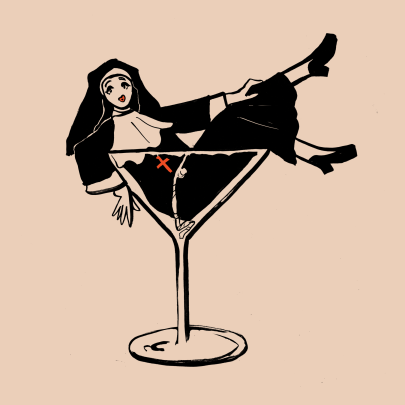May 12, 2014 Theatre
Auckland Theatre Company, directed by Colin McColl
Maidment Theatre
May 10, 2014
Polly and Lyman Wyeth (Sarah Peirse and Peter Hayden) are wealthy Jewish Americans enjoying an easy retirement in Palm Springs. At least it would seem so, until Christmas 2004, when daughter Brooke (Hera Dunleavy) and son Trip (Adam Gardiner) appear. When the play begins Brooke has been home for three hours and already tensions are rising. Brooke is a writer, having one novel to her name and the manuscript of a memoir in her suitcase, which focusses on her version of a devastating family tragedy.
As is so often the case in wealthy families the children have left-wing ideals and the parents the diametric opposite. Friends of the Reagans since Hollywood days, Lyman (once a movie star famous for his spectacular onscreen deaths) and Polly (once a television writer) believe, as many Republicans do, that they are liberal in their leanings. “I don’t have a bigoted bone in my body,” says Polly, who is rejoicing that this Christmas she doesn’t have to cook. Instead they’re going to the Country Club, where among the offerings will be “chink food”. “Who has Christmas at the Country Club?” asks Brooke. “Jews?”
Family life is further complicated by the residence of Silda (Elizabeth Hawthorne), Polly’s sister, who is just out of rehab. Silda has no children of her own but enjoys a close relationship with her niece, with whom she shares certain traits. Career stalled by depression and her self-confessed “good memory for pain”, Brooke struggles against the “indentured servitude” of her family. Her father demonstrably loves her and Polly makes reference to the hours spent at Brooke’s bedside when she cracked completely. But mother and daughter are mostly at one another’s throats. “I can’t bear you!” Brooke informs her mother, in a strangely flat scene that precedes the great reveal.
Jon Robin Baitz’s play abounds with memorable one-liners, especially from the female characters. “Your generation are all either vegans or meth addicts,” says Polly to Brooke. “Your politics are offensive to normal people,” Silda tells her sister. Trip is the most normal of all of them, spending his life making “cheerful and ironic TV shows” even as he’s filled with despair. He was only five years old when the tragedy happened, the truth of which Polly and Lyman have done their best to sweep under the sumptuous shagpile carpet that forms the centre of the minimalist, elegant set. Far from hammering the evils of Republicanism, Baitz manages to show us the humanity of characters on either side of the political divide, and how, in the end, the Wyeths are there for one another.
Novels, plays and films pour out of the United States on the subject of highly articulate, dysfunctional middle-class families and many are enjoyed by New Zealanders, despite the fact that our more reticent national character makes their behaviour alien to us. This ATC production with its stellar cast is fast, slick and highly entertaining.
To May 31





